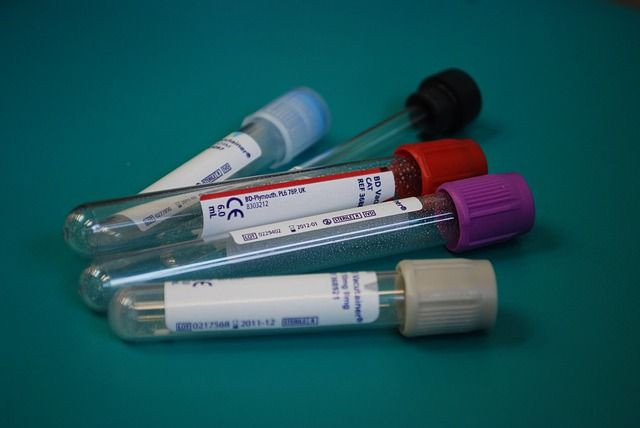Do I Have Cancer? Simple Blood Test Could Detect Tumors Early — Anywhere In The Body

A universal blood test for any type of cancer is an oncologist’s dream come true, and a new study suggests this concept may soon become a reality. Research from the University of California, San Diego, has found a new way to detect cancer in the blood that could both alert doctors to the presence of cancer, and tell them where in the body the tumor is located.
The new study, published online in the journal Nature Genetics, describes the discovery of a new clue found in the blood. Although the discovery is preliminary, the team hopes to soon advance to the clinical stage where it can be tested. If the testing proceeds as hoped, it could make cancer diagnosis faster and more effective.
Read: 2 New Biomarkers Help Detect Deadly Cancer Earlier, More Accurately, Researchers Say
"We made this discovery by accident,” explained study senior author Kun Zhang in a recent article published by the University of California, San Diego's, news center. “But we were also seeing signals from other cells and realized that if we integrate both sets of signals together, we could actually determine the presence or absence of a tumor, and where the tumor is growing.”
Biomarkers are molecules that indicate either normal or abnormal processes in your body, and can be used to mark everything from heart disease to multiple sclerosis, My Cancer reported. In the case of cancer, biomarkers are often either proteins given off by tumors or gene mutations, rearrangements, or other genetic abnormalities that indicate cancer’s presence.
In the new study, the team put together a database of different gene patterns that indicate the presence of normal tissues in 10 different body parts: The liver, intestine, colon, lung, brain, kidney, pancreas, spleen, stomach, and blood. By combining this information with tumor and blood samples from cancer patients, the team was able to create a database of cancer-specific genetic biomarkers. Using this list, they hope to be able to screen patients' blood and tell where in the body cancer is located.
Identifying biomarkers for cancer is an important part of cancer research, and a topic of great interest recently for scientists. For example, in a study published earlier this month, scientists announced the discovery of two proteins that could help make pancreatic cancer diagnosis faster and more accurate.
These proteins, found in the blood, increased the predictive ability of biomarker tests already used to detect pancreatic cancer. Because pancreatic cancer is often diagnosed too late for surgery to be an option, the use of these new biomarkers could potentially save lives down the line.
Source: Guo S, Diep D, Fung HL, et al. Identification of methylation haplotype blocks aids in deconvolution of heterogeneous tissue samples and tumor tissue-of-origin mapping from plasma DNA. Nature Genetics. 2017
See Also:
Breast Cancer Biomarker To Allow Early, Inexpensive Detection
4 Depression Types: Biomarkers May Help Diagnose Disorder Subtypes
Published by Medicaldaily.com



























